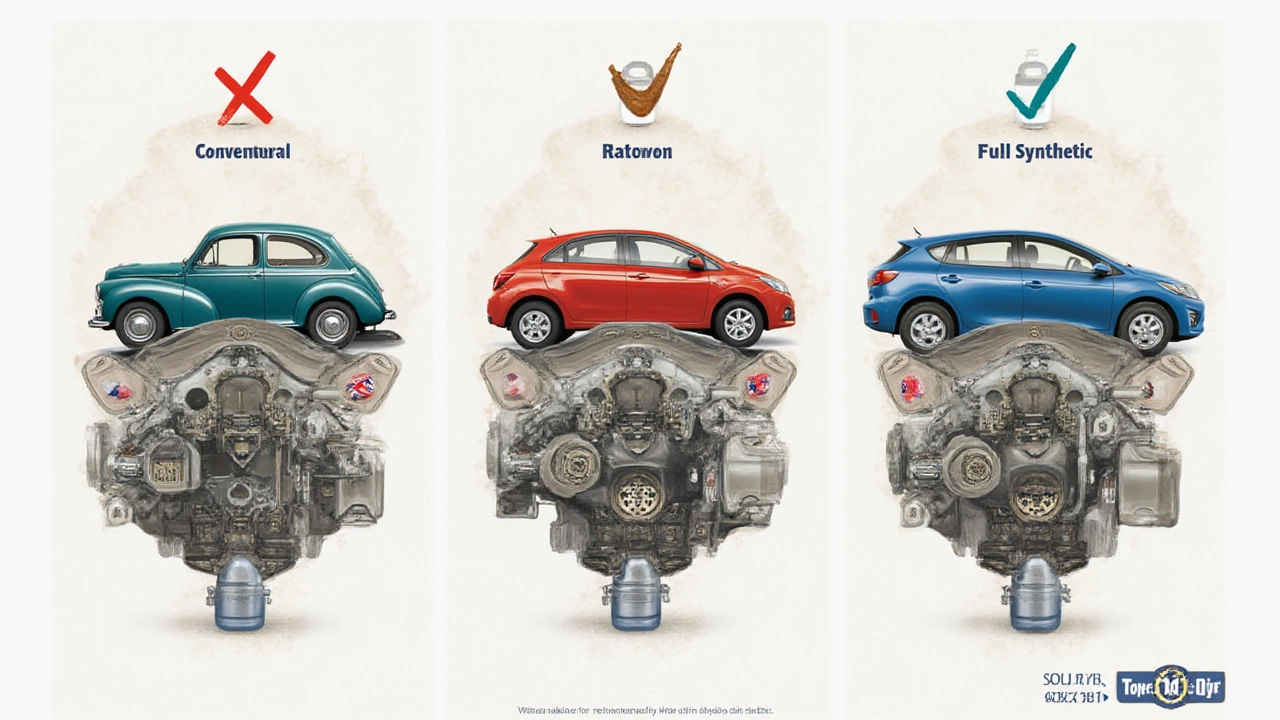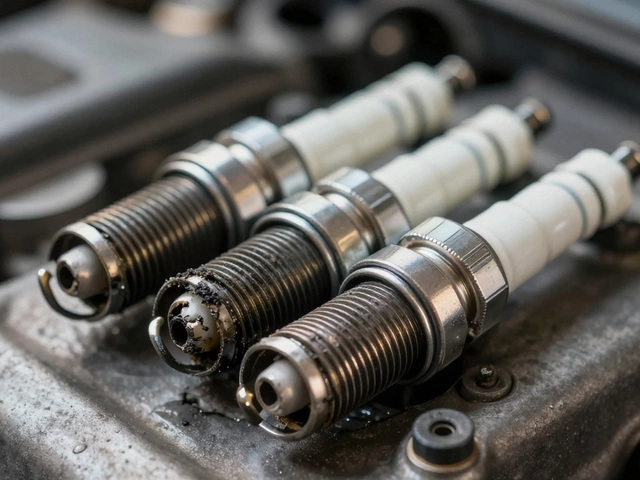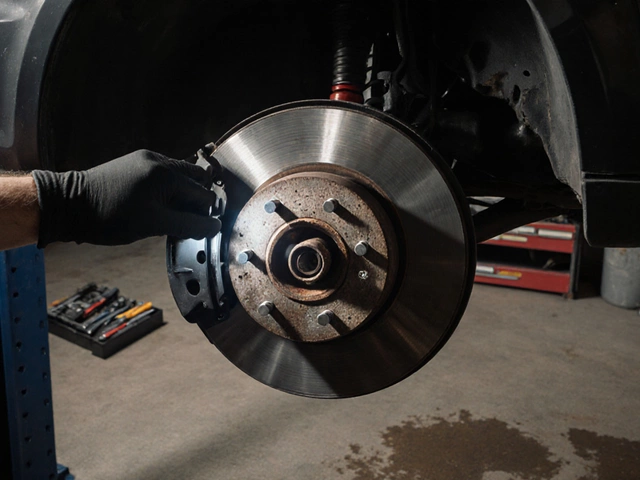Ever heard your mechanic swear by full synthetic oil, like it's the cure for all car troubles? It's tempting to believe, especially with the bold claims on those bright bottles. But here's the deal—sometimes, using full synthetic oil can do more harm than good. Yes, even though it’s billed as superior, there are cases where you’ll wish you’d stuck with old-school conventional oil, or at least double-checked what your engine wants. People rarely talk about the flip side, yet the stories and headaches are real. Let’s break down when to actually say 'no thanks' to that slick, expensive jug of synthetic.
Understanding Full Synthetic Oil: What Sets It Apart?
First, let’s clear the air about what full synthetic oil is. It’s not just regular motor oil with a marketing glow-up. This stuff is engineered from pure chemical compounds, usually starting with a synthesized base stock. The result? Molecules are uniform in size and shape, which means less friction, better stability under extreme temps, and slower breakdown compared to traditional mineral-based oils. That’s how your car’s engine stays cleaner and performs smoothly for longer intervals.
Synthetic oils come packed with peculiar advantages—better flow in freezing weather, protection against deposits, resistance to oxidation, and a longer lifespan between changes. For turbocharged, high-performance engines, or those with tight tolerances, that’s a game changer. Many newer engines demand it, partly because automakers know these benefits stretch the life of expensive engines.
That doesn’t make full synthetic a universal hero. Like every technology, it has its context. For example, some older engines or classic cars were built around the quirks of mineral oil—their seals, tolerances, and metals expected it. Pouring synthetic into those can cause leaks or weird noises. Even off-the-shelf synthetics can sometimes play badly with older gaskets, causing more problems than they solve. Just because something is high-tech doesn’t mean it’s right for every situation, even when the promise is fewer oil changes or 'protection up to 15,000 miles.' No free lunches here.
Real-World Situations Where Full Synthetic Oil Fails or Backfires
Let’s drop the theory and look at honest, practical scenarios. Picture this: You’ve got a 1980s pickup—doesn’t leak, runs decently, but you want to treat it. Switch from conventional oil to full synthetic, and a week later, your garage floor becomes an oil painting. It’s not a fluke. Synthetic oils clean up sludge and crud left by conventional oils, which can expose cracks, shrunken seals, or worn gaskets that were previously sealed by gunk. Suddenly, you’re burning through oil faster than your last road-trip playlist.
That’s not the only risk. Some older engines—especially those with flat tappet camshafts or lifters—were designed around higher levels of certain additives, like ZDDP (zinc dialkyldithiophosphate). Modern full synthetic oils often lack these, instead complying with newer emission standards. Without enough ZDDP, those classic cams and lifters might suffer from accelerated wear, which is a nightmare to fix. So, if your ride rolled off the line before synthetic was even an option, better stick to what it knows, or at least use a specially formulated high-zinc oil.
Here’s another snag: motorcycles with 'wet clutches' often share engine oil with the transmission. Full synthetic oil, especially the kind designed only for cars, can make these clutches slip and anyone who’s been stranded miles from home knows that’s no joke. The wrong oil here means less power to the wheels and potentially frying an already pricey clutch.
Pure cost matters, too. Synthetic oil is pricier upfront. If you’re driving a 20-year-old beater or a backup vehicle with a value barely above scrap, it makes zero financial sense to invest in the fanciest oil. The engine’s likely running wide tolerances anyway, and won’t magically live forever with synthetic. The savings you get from longer oil intervals won’t matter if the engine itself isn’t designed for that kind of maintenance. This is especially true if your manual calls for oil changes based on time instead of mileage—think rarely driven classics or seasonal cars.
Older Engines and Seals: The Sticky Issue with Synthetics
Walk into any car meet and mention 'synthetic oil in old engines.' Watch the debate heat up. Here’s why: Back in the day, rubber seals and gaskets used different compounds than today’s modern engines. Early synthetics were notorious for shrinking, hardening, or even dissolving old seals and gaskets. The result? Oil leaks you never had before, sometimes lots of them. The industry has improved formulas since then. Most current synthetic oils include seal conditioners, lessening the risk, but the issue hasn’t vanished, especially in engines that haven’t seen a rebuild or fresh gaskets in decades.
Curious about some real numbers? A study published in 2021 by an auto association surveyed DIY car owners and engine shops: 38% of those who switched old engines (pre-1995) to synthetic oil reported fresh leaks within the first year. Most leaks were moderate—nothing catastrophic, but annoying enough to warrant switching back or, worse, paying for gasket replacements. Owners of cars with higher mileage (over 100,000 miles) were twice as likely to notice leaks after switching to synthetic. Why is this the case? Engine sludge covers up small cracks and hardening in original seals. When synthetic oil strips away that built-up sludge, those old gaskets and seals suddenly have to work like new.
It’s not just about leaks, either. In a really worn engine, full synthetic might be too “thin” at higher temperatures, leading to increased oil consumption. Old engines designed for thicker, conventional oils just can’t grip the thin stuff the way they should, so you end up having to top off more frequently. And guess what? That fancy oil change you splurged on ends up losing its magic as you’re constantly adding more quarts to keep your dipstick level healthy.

When Synthetic Just Doesn’t Make Economic Sense
Everyone’s heard the pitch: synthetic oil is worth every penny thanks to longer intervals and superior engine protection. Sometimes, sure. But don’t ignore the math. If you’ve got a fleet vehicle cranking out 200,000 miles and you’re pushing for reliability every day, synthetic is probably paying for itself in reduced wear and downtime. But what if you drive a $1200 commuter car, only make short trips, or put a thousand miles a year on your convertible that’s showered with love three months a year?
Not only does synthetic oil cost about twice as much as conventional, some shops charge extra for oil changes with synthetic—sometimes $20 to $40 more per service. That can add up quickly, especially if you’re not even reaching the extended intervals synthetics offer. If your manual says to change oil every 3,000 miles or twice a year regardless of type, synthetic’s long life isn’t really doing anything for you. Classic cars, motorcycles, old work trucks—if they get driven a couple hundred miles a month, that jug of high-dollar synthetic just isn’t buying enough real-world protection to justify the extra cash.
The bottom line: synthetic is an investment. Sometimes, it’s like putting premium gas in a car that’s designed for regular—might not hurt, but it won’t help enough to justify the expense. For cars nearing the end of their usable life, be kind to your wallet and stick to the basics.
Myths, Manufacturer Recommendations, and What Actually Matters
A mountain of myths has built up around engine oil. One friend swears synthetic will make any car last 'forever.' The guy at the parts store says it’ll destroy your gaskets. Who’s right? In most cases, the real answer is boring but true: What does your car’s owner’s manual say? Car companies design engines with specific oil characteristics in mind—viscosity, detergent packages, additive levels. Ignore that, and you’re rolling the dice, regardless of how 'high end' the oil seems.
Manufacturers update recommendations every few years as they learn more from real-world testing or change engine designs. For example, starting in the late 2010s, many automakers began requiring full synthetic oil in turbocharged or direct-injected engines. These engines run much hotter than old ones and face issues like 'LSPI' (low-speed pre-ignition) that regular oil can’t handle. But if you’re driving a mid-’90s Corolla or a farm truck that was built before synthetic oil hit supermarket shelves, it probably won’t gain much—if any—extra life or efficiency from a switch. Some might even suffer.
Another myth is that you can never go back once you’ve switched to synthetic. Total nonsense. If you’re not happy with leaks, or you simply want to save cash, you can swap back to conventional or a synthetic blend at your next change without hurting your engine. Just match up the viscosity and the recommended oil spec—don’t overthink it.
If you use additives or specialized high-zinc formulas, be extra careful. As discussed earlier, certain older or high-performance engines (like many muscle cars or vintage European imports) need a specific balance of additives to prevent wear. Regular full synthetic might not provide this without adding dedicated supplements.
Let’s make this even clearer with a quick table—based on what’s recommended from automakers and oil producers as of 2024:
| Engine Age/Type | Oil Type Recommended | Why Avoid Synthetic? |
|---|---|---|
| Pre-1995 cars, high mileage | Conventional or synthetic blend, high-zinc formulas | Potential oil leaks from seals, insufficient additive content in most synthetics |
| Motorcycles with wet clutch | Motorcycle-specific oil | Automotive synthetics may cause clutch slip |
| Classic cars, rarely driven | Conventional, high-zinc if flat tappet cams | Expense not justified, potential for leak/sludge removal issues |
| Fleet vehicles, taxis | Synthetic or blend | Use synthetic only for cost-effectiveness via long intervals |
| Modern, high-performance engine | Full synthetic (per OEM) | Required for warranty/LSPI/turbo protection—do NOT avoid |
The takeaway? Your owner’s manual and real-world use case matter more than shiny marketing or urban legends.
Smart Tips for Choosing Oil: Focus on Needs, Not Just Hype
No matter what the bottle says, the real answer to “should you use full synthetic oil” depends on your car, how you drive, and what’s actually under your hood. Here’s how to make the smartest call:
- full synthetic oil is essential if your automaker or engine builder requires it, especially for modern, high-performance, or turbocharged engines.
- If your vehicle is older (built pre-1995) or has high mileage, consider conventional oil or a high-mileage synthetic blend. Watch for new leaks whenever you change oil types.
- For engines with flat tappet cams or certain older designs, choose oils with extra ZDDP or use a dedicated additive. Don’t rely on off-the-shelf synthetics to provide those levels.
- Value economy over hype: If you drive cheap beaters, classic cars, or seasonal vehicles, conventional oil is almost always more practical.
- Match the viscosity and performance standard printed in your vehicle manual, no matter what oil you use.
- Don’t mix motorcycle/automotive oil types, especially with wet clutches—use the type built for your engine and gearbox.
- If you see leaks or increased oil consumption after a switch to synthetic, don’t panic—just switch back at your next interval and monitor the situation.
I’ll leave you with this: I once thought of switching Olivia’s old Miata to synthetic, just because everyone at the track said it was 'better.' But after reading up, asking a specialist, and checking the manual, I realized it was never designed for that. I stuck to the original recommendation, and it’s still humming down the back roads every summer without a single drip. Sometimes, sticking to what works isn’t just safe—it’s smart for your wallet and for peace of mind. Don’t get caught up in oil hype. Your car will thank you in its own, trouble-free way.






